Lynn Nottage’s Pulitzer Prize-winning play Ruined is a powerful exploration of survival and resilience in war-torn Congo‚ available in PDF format for global readers.
Overview of the Play “Ruined”
“Ruined‚” a powerful drama by Lynn Nottage‚ delves into the lives of women surviving the civil war in the Democratic Republic of Congo. Set in a brothel run by the enigmatic Mama Nadi‚ the play explores themes of resilience‚ morality‚ and the human cost of conflict. Through vivid characters like Sophie‚ Salima‚ and Christian‚ Nottage examines how war disrupts lives and forces individuals into impossible choices. The play blends raw emotion with a stark portrayal of war’s brutality‚ offering a deeply moving critique of global capitalism’s role in perpetuating violence. Winner of the 2009 Pulitzer Prize for Drama‚ “Ruined” is celebrated for its unflinching honesty and its ability to give voice to the silenced‚ making it a significant work in contemporary theater.
Lynn Nottage’s Background and Achievements
Lynn Nottage is a renowned American playwright and screenwriter‚ born in 1964 in Brooklyn‚ New York. She earned a Bachelor of Arts degree from Brown University and a Master of Fine Arts degree from Yale School of Drama. Nottage gained prominence for her thought-provoking plays that explore themes of social justice‚ race‚ and gender. Her work often delves into the experiences of marginalized communities‚ offering powerful narratives that challenge societal norms. Nottage’s play “Ruined” earned her the 2009 Pulitzer Prize for Drama‚ solidifying her reputation as a leading voice in contemporary theater. She has also received numerous awards‚ including a Guggenheim Fellowship and recognition from the American Academy of Arts and Letters. Her ability to weave compelling stories has made her one of the most celebrated playwrights of her generation.
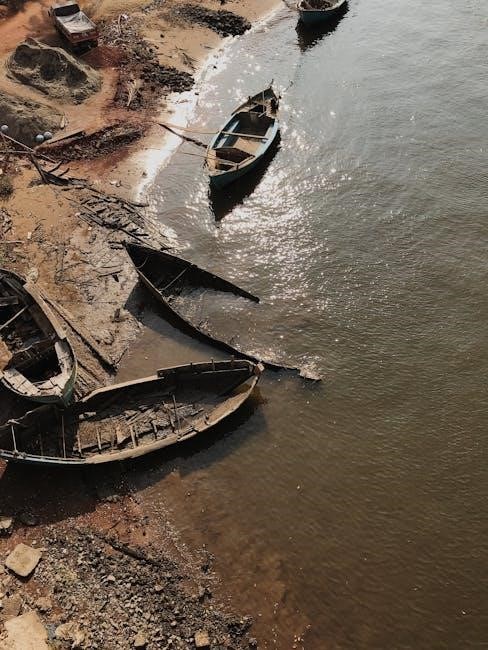
Significance of the Play in Modern Drama
“Ruined” holds a pivotal place in modern drama for its unflinching portrayal of the human cost of war and its impact on women. Lynn Nottage’s work challenges audiences to confront the harsh realities of sexual violence‚ exploitation‚ and survival in conflict zones. The play’s ability to blend raw emotion with political commentary makes it a powerful tool for sparking dialogue about social justice and gender inequality. By centering the voices of African women‚ Nottage fills a gap in storytelling‚ offering a perspective often overlooked in global narratives. The play’s critical acclaim‚ including the Pulitzer Prize‚ underscores its relevance and impact‚ cementing its role as a vital work in contemporary theater that addresses urgent humanitarian issues with depth and nuance.
Plot Overview
Set in a brothel during the Democratic Republic of Congo’s civil war‚ Ruined explores the resilience of women navigating survival‚ exploitation‚ and hope amidst conflict.
Setting: Mama Nadi’s Brothel in the Democratic Republic of Congo
The play is set in a brothel owned by Mama Nadi‚ situated in the Democratic Republic of Congo during its brutal civil war. The brothel acts as a refuge and marketplace‚ where women survive by offering their bodies to soldiers and traders. The setting reflects the chaos and violence of the war-torn region‚ with the brothel serving as both a sanctuary and a prison. The environment is raw and gritty‚ with the sounds of gunfire and the presence of armed men constantly reminding the characters of the conflict outside. Mama Nadi’s brothel becomes a microcosm of the larger societal collapse‚ where morality‚ survival‚ and exploitation intertwine. The setting vividly portrays the devastating impact of war on women and communities.
Main Plot: The Story of Women Surviving Civil War
The main plot of Ruined revolves around the lives of women trapped in the turmoil of the Democratic Republic of Congo’s civil war. The story centers on Mama Nadi’s brothel‚ where women like Sophie‚ Salima‚ and others seek refuge. These women‚ survivors of sexual violence and displacement‚ navigate their harsh reality by forming bonds and finding ways to survive. The plot explores their struggles‚ resilience‚ and the moral compromises they make to endure. The brothel becomes a space where the women confront their pasts‚ face their present‚ and cling to hope for a future. Through their stories‚ the play highlights the human cost of war and the strength of women in the face of unimaginable suffering‚ blending tragedy with moments of unexpected humor and humanity.
Key Conflicts and Turning Points
The play revolves around the internal and external conflicts faced by the women in Mama Nadi’s brothel. A central conflict arises from the moral dilemmas of surviving in a war-torn society‚ as the women confront their past traumas and the harsh realities of their present. The arrival of Sophie‚ a young girl with physical scars‚ introduces tension and hope‚ while Salima’s emotional breakdown reveals the depth of their collective pain. A pivotal turning point occurs when Christian‚ a local trader‚ is killed by rebels‚ forcing the women to confront the brutality of war. Mama Nadi’s eventual decision to stand against the violence marks a shift in her character‚ highlighting the struggle between self-preservation and humanity. These conflicts and moments of transformation drive the narrative‚ illustrating the resilience and fragility of the women in the face of war.

Characters
The play features complex characters‚ including Mama Nadi‚ the brothel owner‚ Sophie‚ the resilient survivor‚ Salima‚ the traumatized woman‚ and Christian‚ the tragic catalyst for change.
Mama Nadi: The Complex Brothel Owner
Mama Nadi is the enigmatic proprietor of a brothel in the Democratic Republic of Congo‚ serving as both a sanctuary and a place of exploitation. Her tough exterior hides a deeply conflicted individual‚ torn between survival and morality. She thrives in a war-torn economy‚ navigating the harsh realities of violence and exploitation. Despite her resilience‚ Mama Nadi struggles with the ethical implications of her business‚ often walking a fine line between protector and profiteer. Her character embodies the contradictions of survival in a chaotic world‚ where necessity often overshadows ideals. Through her‚ Nottage explores themes of agency‚ power‚ and the moral compromises required to endure in a society fractured by conflict and greed.
Sophie: The Young and Resilient Survivor
Sophie is a poignant representation of the resilience and strength of women in the face of unimaginable trauma. As a young survivor of sexual violence‚ her physical and emotional scars are a constant reminder of the brutality of war. Despite her injuries‚ Sophie exhibits remarkable adaptability‚ finding ways to navigate the harsh realities of her environment. Her character highlights the profound impact of conflict on women‚ emphasizing their struggle to maintain dignity and hope amidst chaos. Through Sophie’s journey‚ Nottage underscores the resilience of the human spirit‚ illustrating how even in the darkest circumstances‚ the will to survive and rebuild endures. Sophie’s story is a testament to the strength and courage of women in the face of adversity‚ resonating deeply with audiences and leaving a lasting impression.
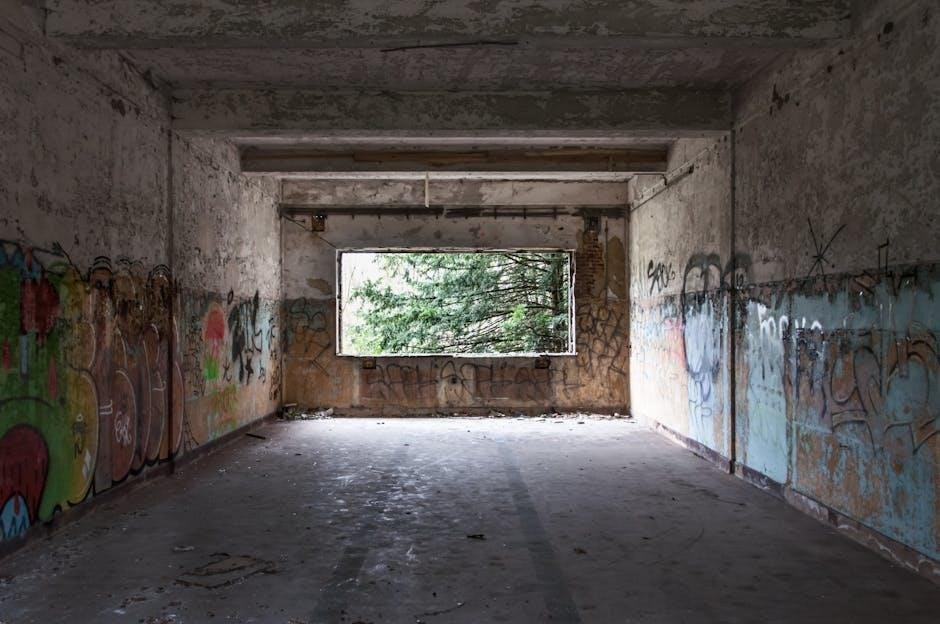
Salima: The Tortured but Determined Woman
Salima is a deeply traumatic yet profoundly inspiring character in Ruined‚ embodying the horrors of war and the unyielding spirit of survival. Her physical and emotional scars serve as a constant reminder of the atrocities she has endured‚ including brutal sexual violence and the loss of her family. Despite her pain‚ Salima exhibits extraordinary determination‚ striving to rebuild her life and find justice in a shattered world. Her journey reflects the broader themes of resilience and the struggle for dignity in the face of unimaginable suffering; Through Salima’s character‚ Nottage brings attention to the long-lasting effects of war on women‚ while also highlighting their strength and capacity to persevere. Salima’s story is a heart-wrenching yet powerful testament to the human spirit’s ability to endure and seek redemption.
Christian: The Tragic Figure and Catalyst for Change
Christian is a pivotal character in Ruined‚ portrayed as both a tragic figure and a catalyst for change. As a miner and a lover of Mama Nadi‚ he embodies the complexities of masculinity amidst war and exploitation. His relationship with Mama Nadi is multifaceted‚ blending affection with tension‚ reflecting the moral ambiguities of survival. Christian’s tragic demise serves as a turning point‚ prompting Mama Nadi to confront her own complicity in the exploitation of women. His death symbolizes the broader tragedy of war and its devastating impact on individuals. Through Christian’s character‚ Nottage highlights the human cost of conflict and the moral dilemmas faced by those trapped in it. His story underscores the need for accountability and change in a society ravaged by violence and greed.
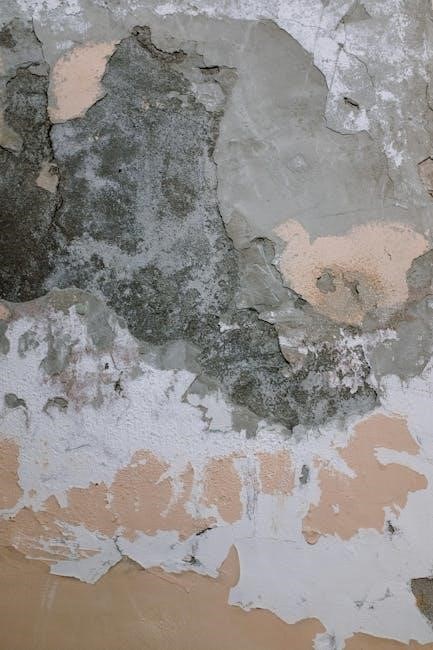
Themes
The themes of Ruined explore resilience‚ survival‚ capitalism’s impact‚ moral dilemmas‚ and identity crises‚ offering a profound commentary on war’s human cost.
Resilience and Survival in War-Torn Congo
In Ruined‚ Lynn Nottage portrays the resilience of women surviving the brutal civil war in the Democratic Republic of Congo. The play highlights their resourcefulness‚ strength‚ and determination to endure amidst unimaginable violence. Mama Nadi’s brothel serves as a refuge‚ where women navigate their harsh realities while clinging to hope. Characters like Sophie and Salima exemplify survival through their ability to adapt and resist‚ despite physical and emotional scars. The play underscores how these women rebuild their lives‚ challenging societal expectations and fostering solidarity. Nottage’s depiction of their resilience not only honors their humanity but also amplifies their voices‚ offering a powerful critique of war’s impact on women and communities.
The Impact of Global Capitalism on Local Conflicts
In Ruined‚ Lynn Nottage examines how global capitalism exacerbates local conflicts in the Democratic Republic of Congo. The play illustrates the exploitation of natural resources‚ such as diamonds and coltan‚ which are highly valued in global markets; These resources often fuel militias and exacerbate violence‚ as factions compete for control. The brothel‚ Mama Nadi’s establishment‚ serves as a microcosm of this exploitation‚ where women’s bodies become commodities in a war economy driven by global demand. The play critiques how international economic interests perpetuate conflict‚ creating cycles of dependency and violence. Nottage highlights the human cost of resource extraction‚ showing how global capitalism’s influence deepens suffering and complicates paths to peace.
Morality and Ethics in a War-Torn Society
In Ruined‚ Lynn Nottage explores the moral and ethical dilemmas faced by individuals in a war-torn society. The play delves into the gray areas between right and wrong‚ where survival often demands compromises. Mama Nadi‚ the brothel owner‚ embodies this complexity‚ as she navigates the harsh realities of protecting her business while exploiting the vulnerabilities of others. The characters’ choices—whether to resist‚ adapt‚ or succumb—reflect the ethical struggles of living in a society fractured by violence and exploitation. The play challenges audiences to consider how morality is reshaped in extreme circumstances‚ where traditional notions of right and wrong are tested by the imperative to survive. Nottage’s portrayal of these ethical conflicts underscores the human cost of war and the resilience required to maintain dignity in the face of despair.
Identity and Femininity in Crisis
In Ruined‚ Lynn Nottage examines how war disrupts identity and femininity‚ forcing women to redefine themselves in the face of unimaginable violence. The characters‚ particularly Mama Nadi‚ Sophie‚ and Salima‚ grapple with the erosion of their sense of self and womanhood. Mama Nadi’s harsh pragmatism contrasts with Sophie’s shattered innocence‚ while Salima’s maternal identity is deeply scarred. The play highlights how societal expectations of femininity are rendered meaningless in a war-torn society‚ where survival often requires women to abandon traditional roles. Nottage portrays the struggle to reclaim identity amidst chaos‚ exploring themes of bodily autonomy‚ resilience‚ and the redefinition of self in the absence of peace. This crisis of identity underscores the broader societal collapse‚ leaving women to navigate a world that no longer values their humanity or femininity. The play profoundly illustrates the lasting impact of war on women’s lives and their sense of self.

Historical Context
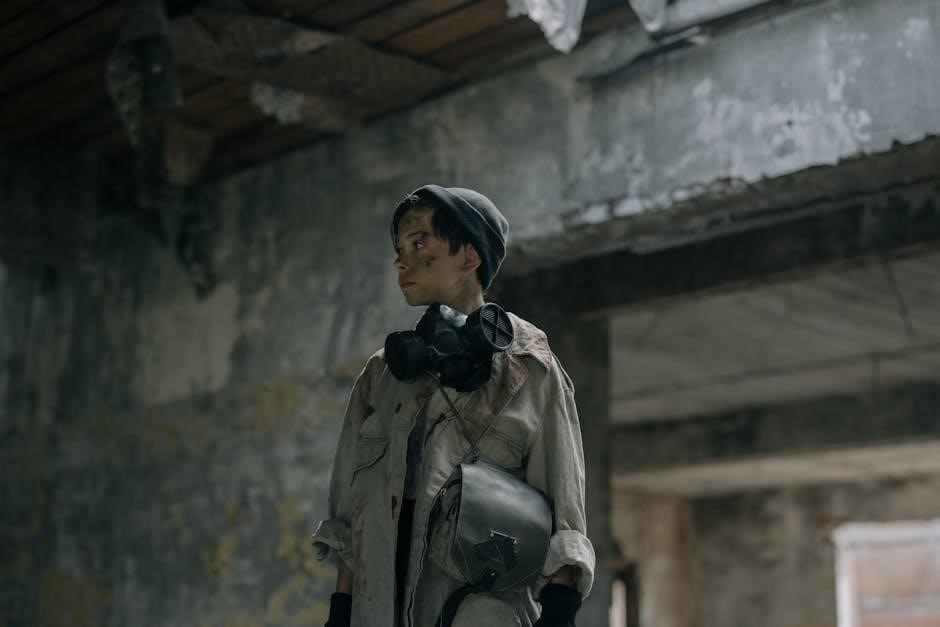
Set during the Democratic Republic of Congo’s civil war‚ Ruined reflects the socio-political turmoil‚ human rights abuses‚ and exploitation fueled by resource extraction‚ impacting civilians severely.
The Civil War in the Democratic Republic of Congo
The civil war in the Democratic Republic of Congo (DRC) serves as the backdrop for Lynn Nottage’s play Ruined. This brutal conflict‚ spanning from the late 1990s to the early 2000s‚ was fueled by political instability‚ ethnic tensions‚ and the exploitation of natural resources. The war involved numerous armed groups and neighboring countries‚ leading to widespread devastation. Millions were displaced‚ and civilians faced unimaginable violence‚ including mass killings‚ rapes‚ and child conscription. The DRC’s rich resources‚ such as coltan and diamonds‚ became a central focus of the conflict‚ as factions fought for control. Nottage’s play highlights the human cost of this war‚ particularly its impact on women‚ who bore the brunt of sexual violence and displacement. The conflict’s legacy continues to shape the region‚ making Ruined a powerful commentary on war’s enduring scars.
Genocide and Its Aftermath

The play Ruined by Lynn Nottage is deeply rooted in the historical context of the Democratic Republic of Congo’s civil war‚ which led to one of the deadliest genocides in modern history. The conflict resulted in millions of deaths‚ widespread displacement‚ and unimaginable suffering‚ particularly for women and children. The aftermath of the genocide left deep scars‚ both physical and emotional‚ as communities struggled to rebuild and heal. Nottage’s portrayal of these events through the lives of her characters highlights the resilience of women in the face of unimaginable violence and the long-lasting impact of such atrocities on individuals and society. The play serves as a powerful reminder of the human cost of war and the enduring strength of the human spirit.
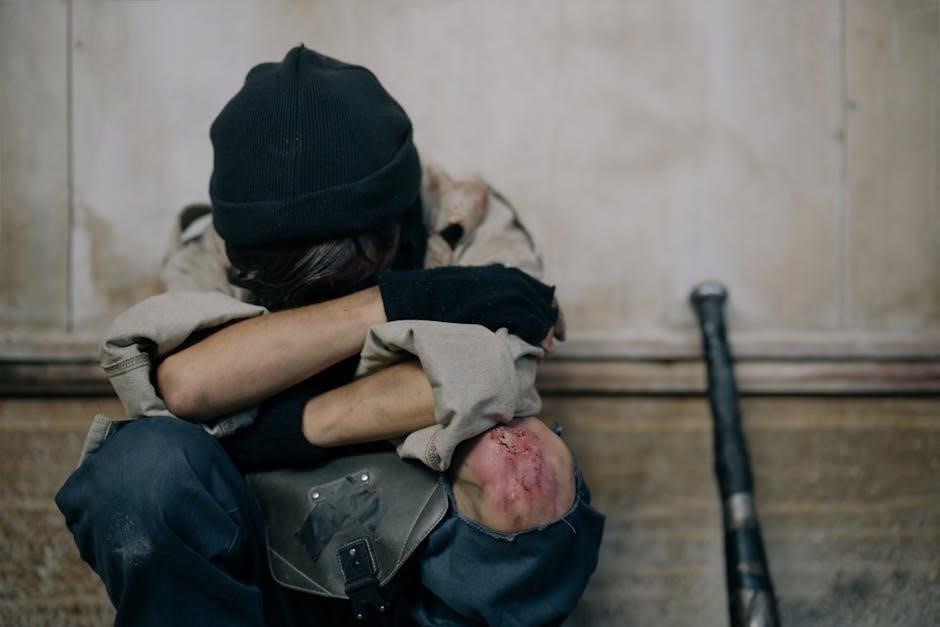
Critical Reception
Pulitzer Prize for Drama in 2009
- Lynn Nottage’s Ruined won the Pulitzer Prize for Drama in 2009‚ acclaiming its raw portrayal of war’s impact on women.
- Major critics praised its unflinching storytelling‚ emotional depth‚ and timely exploration of human resilience amidst conflict.
- The play received widespread critical acclaim for its thought-provoking themes and authentic representation of survivors’ struggles.
Lynn Nottage’s play Ruined earned the prestigious Pulitzer Prize for Drama in 2009‚ a landmark achievement in her career. This recognition highlighted the play’s powerful portrayal of women’s lives during the civil war in the Democratic Republic of Congo. The Pulitzer Prize is one of the most esteemed awards in American journalism and arts‚ and this honor underscored the play’s emotional depth and social relevance. Ruined was praised for its unflinching exploration of themes such as survival‚ resilience‚ and the exploitation of women in conflict zones. Nottage’s victory marked a significant moment in her career‚ solidifying her reputation as a leading voice in contemporary drama. The play’s success continued to resonate‚ sparking conversations about gender‚ war‚ and human rights globally.
Reviews and Acclaim from Major Critics
Lynn Nottage’s Ruined received widespread critical acclaim for its powerful portrayal of women’s resilience during wartime. Critics praised the play for its unflinching honesty and emotional depth. The New York Times hailed it as a “masterpiece‚” noting its ability to balance harsh realities with moments of hope. Similarly‚ The Washington Post commended Nottage for her nuanced exploration of humanity in the midst of chaos. The play’s authenticity and emotional resonance were further highlighted by critics‚ who appreciated its non-sensational approach to addressing atrocities. Many reviewers emphasized its importance in shedding light on the often-overlooked experiences of women in conflict zones. The play’s success solidified Nottage’s reputation as a leading voice in contemporary drama;
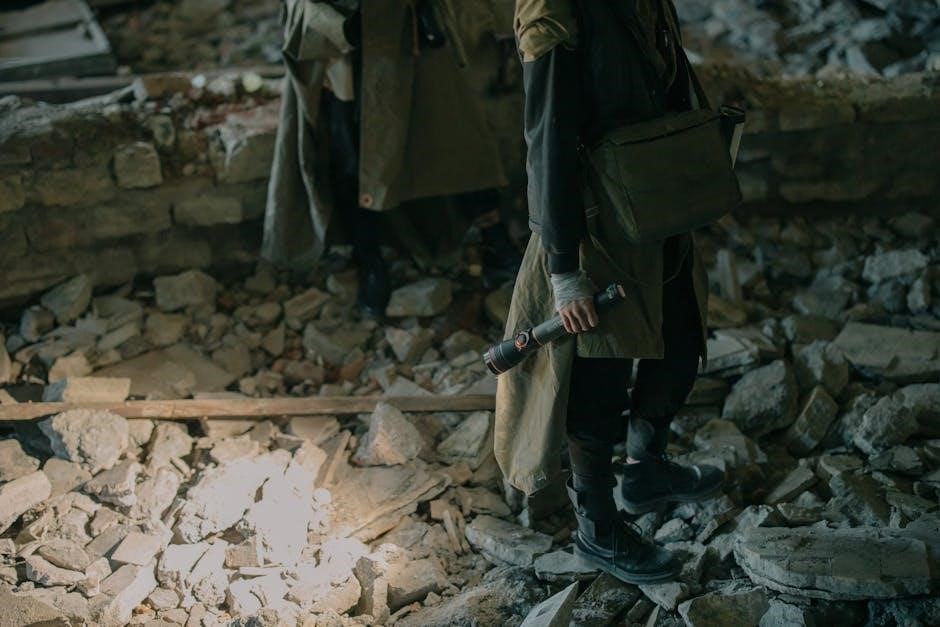
Availability and Accessibility
How to Download “Ruined” in PDF Format
Lynn Nottage’s “Ruined” can be downloaded in PDF format through official publishers‚ online retailers‚ or academic databases‚ ensuring legal and ethical access to the play.
Licensing and Performance Rights
Theatres and schools can obtain performance rights by contacting licensing agencies‚ which manage permissions for staging the play while respecting copyright regulations and supporting the playwright.
Obtaining a PDF version of Lynn Nottage’s Ruined is straightforward through various platforms. The play is widely available in digital formats‚ and readers can access it via online bookstores like Amazon or Barnes & Noble. Academic databases and libraries often provide access to the text for students and researchers. Additionally‚ some websites offer free downloads‚ though it’s important to ensure the source is legal and safe. Purchasing a PDF copy directly from the publisher or authorized sellers guarantees quality and supports the author. For those seeking free access‚ libraries or educational institutions may offer borrowing options. Always verify the legitimacy of the source to avoid unauthorized downloads.
Obtaining the necessary licensing and performance rights for Ruined by Lynn Nottage is essential for any production. The play is published by Dramatists Play Service‚ which handles the licensing process. Theater groups‚ schools‚ or organizations interested in staging the play must contact the publisher to secure the rights. Fees vary based on the production’s scale and location. Amateur and professional productions alike require proper licensing to ensure compliance with copyright laws. Additionally‚ the script in PDF format can be purchased for personal use or production purposes through official retailers like Amazon or directly from the publisher. Always ensure you have legal permission to perform or distribute the work to respect the playwright’s rights and intellectual property.